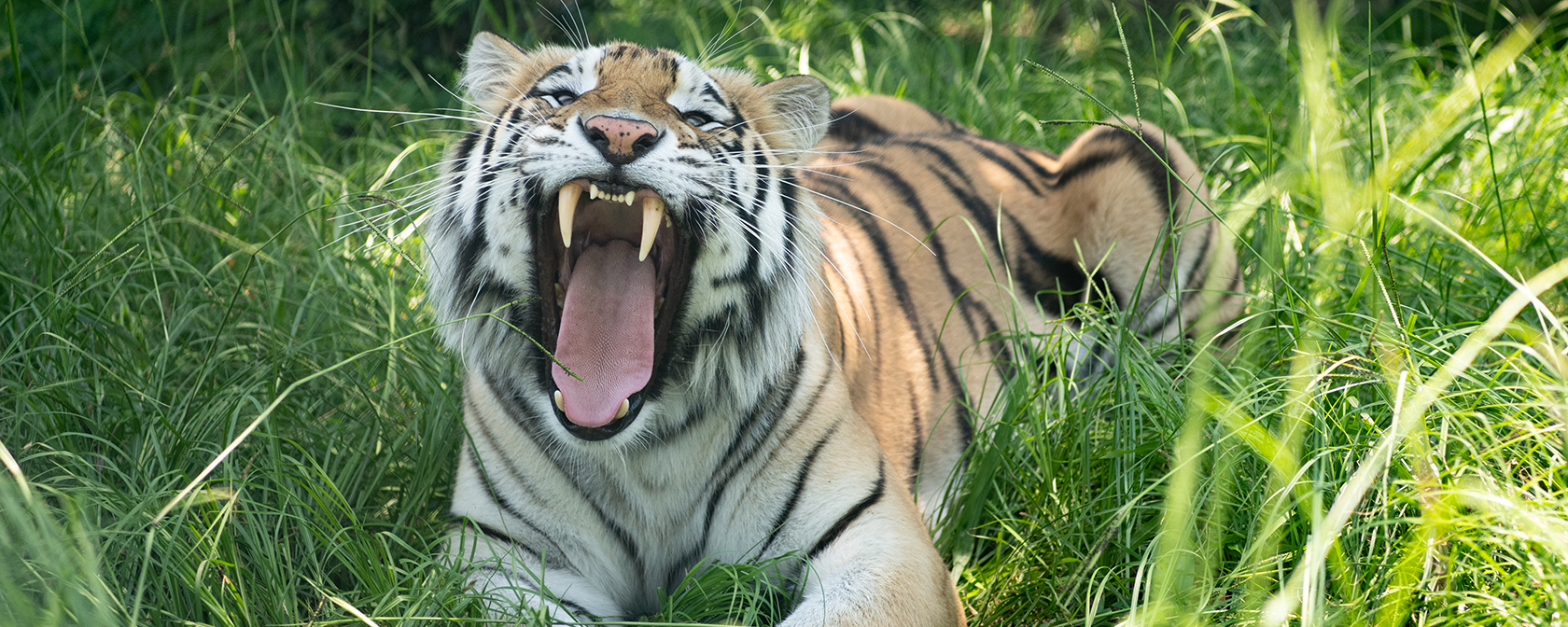America has a big cat crisis. Untold numbers of captive tigers, lions, leopards and other big cat species are kept in captivity throughout the nation, most of them in shoddy roadside zoos, private menageries or in private homes and yards as pets. Today, to confront this cruelty and halt the worst excesses of the industry that exploits these animals so mercilessly, the U.S. House Committee on Natural Resources passed the Big Cat Public Safety Act, H.R. 263, by a vote of 25-17.
The legislation, introduced by Reps. Mike Quigley (D-Ill.) and Brian Fitzpatrick (R-Pa.), would prohibit keeping tigers, lions, leopards and other big cat species as pets, and ban direct contact between big cats and the public. Big cats are large apex predators who roam widely in their natural habitats. In captivity, their lives could not be more different—or miserable. They are usually warehoused in small, barren and poorly secured cages, improperly fed, and denied appropriate veterinary care.
Now, the bill should be taken up for a vote by the entire House of Representatives, where it already enjoys the bipartisan cosponsorship of 257 members, more than half of the Congress.
The country’s large population of captive big cats is chiefly the fault of an unscrupulous public contact industry in which low-grade roadside zoos and petting operations charge members of the public to pet, feed, play with, or get their picture taken with infant tigers, lions, leopards, etc. Our undercover investigations of cub petting graphically exposed its immense cruelty. Bred specifically for the industry, babies are torn from their mothers at birth and suffer significant neglect and mistreatment during their time as photo props. At just a few months of age, when they have grown too large to be handled, they are often warehoused in roadside zoos or cast into the pet trade. And inevitably the fate of many big cats in this terrible pipeline is unknown. Meanwhile, new cubs continue to be produced, used for public contact, and disposed of—a cruel cycle that has created an unsustainable number of “surplus” animals.
The passage of the Big Cat Public Safety Act (H.R. 263/S. 1210) would prevent hucksters such as those featured in the Netflix series Tiger King from using vulnerable cubs for public handling. Some of these operators are already on the ropes. Joe Exotic is in prison, Jeff Lowe’s USDA license was suspended, Tim Stark’s USDA license was revoked, and “Doc” Antle has been indicted on animal cruelty and wildlife trafficking charges. Just last week, Antle was also charged with federal money laundering crimes in a human trafficking case. None of this meaningfully changes what happens on the ground, however, because as long as cub petting remains legal, nothing will prevent other “Tiger King” wannabes from profiting off the lives of vulnerable big cats.
Allowing the public to handle and take selfies with tiger cubs does nothing to advance conservation or education. In fact, data shows that such activities distort public perceptions regarding the conservation needs of wild cats. In addition, conservationists have long feared that tigers and lions discarded from the cub-petting industry feed the illegal market for animal parts used in supposed traditional medicine, as well as fuel the poaching of big cats in the wild.
Many of these animals end up in private situations not much better than the petting operations or roadside zoos. It is likely that 6-month-old Elsa, who was found crying outside in freezing temperatures, Loki, who was discovered in a tiny, filthy cage in the garage of an abandoned house, and 9-month-old India, who was confiscated after strolling through a residential neighborhood, began life as cubs in the cruel cub petting business.
The pandemic has provided another need to ban cub petting. The coronavirus has been found in captive tigers, lions, cougars and snow leopards, leading the U.S. Department of Agriculture to issue a rare advisory to big cat exhibitors to discontinue hands-on encounters with wild cats in the interests of public safety and animal welfare.
In the last Congress, the legislation passed the House by a vote of 272 – 114, with strong bipartisan support. Unfortunately, the session ended before it could be taken up by the Senate.
H.R. 263 and its companion bill in the Senate, S. 1210, introduced by Sens. Richard Blumenthal (D-Conn.), Susan Collins (R-Maine), Tom Carper (D-Del.) and Richard Burr (R-N.C.), have been endorsed by more than 80 animal welfare organizations, professionally operated zoos and animal sanctuaries, and law enforcement organizations and officials.
We thank Reps. Quigley and Fitzpatrick for their longstanding commitment to this legislation, and we thank Natural Resources Committee Chair Raúl Grijalva (D-Ariz.) and Water, Oceans, and Wildlife Subcommittee Chair Jared Huffman (D-Calif.) for moving it through the committee. Please contact your U.S. Representative and two U.S. Senators today to urge their support of H.R. 263/S. 1210!




